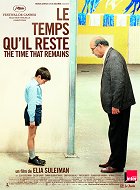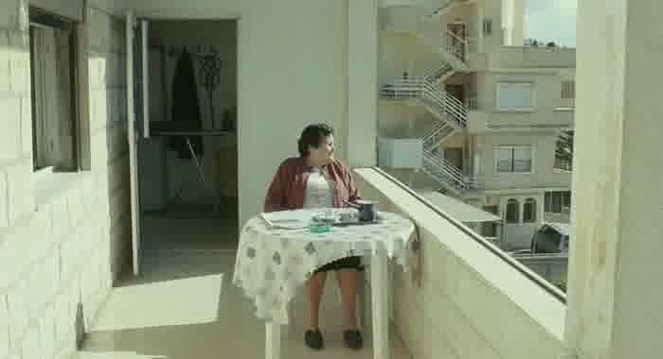Director:
Elia SuleimanGuión:
Elia SuleimanCámara:
Marc-André BatigneReparto:
Ali Suliman, Saleh Bakri, Elia Suleiman, Menashe Noy, Tarik Kopty, Doraid Liddawi, Ehab Assal, Majd Bitar, Ziad Bakri, Alex BakriSinopsis(1)
Actor, screenwriter and director Elia Suleiman presents a handful of autobiographical short stories that offer a witty but thoughtful perspective on the place of Palestinians in Israel (and his own role in the nation) in this comedy-drama. Inspired by the journals kept by Suleiman's father, the first episode takes place in 1948, as the Arab resistance movement begins to crumble, though Faud Suleiman (Saleh Bakri) is determined to keep up the fight. By 1970, Faud has lost his idealism and believes Palestine is destined to live in Israel's shadow, while his son Elia (Zuhair Abu Hanna) is being punished for calling the United States colonialists before the teacher. A few years later, Elia (Ayman Espanioli) has a brush with more powerful authorities, who attempt to toss him out of Israel on a minor offense. Finally, Elia (Elia Suleiman) returns home to look after his elderly mother (Samar Qudha Tanus) and discovers how little has changed, as many of his old friends have been warming the same barstools since he left. (texto oficial de la distribuidora)
(más)Reseñas (1)
Two families in one apartment are usually not a good thing. Two nations in one country, with radically opposite ideas about who should govern the country, even about who should live in it and how they should behave - that really smells like trouble. The Time That Remains is an intellectually oriented grotesque about the coexistence of two roosters in one landfill, where one of them clearly dominates and doesn't hesitate to painfully mock the weaker one when necessary, which has unpleasant consequences for the weaker one. It's a typical festival film that has a chance to appeal to alternative audiences who like to experience the unknown. The film is actually an autobiographical chronicle of the lives of two generations of Palestinians in occupied territories from the declaration of the state of Israel to the intifada. Elia Suleiman uses absurd exaggeration, a slightly Kafkaesque style of alienation of a person who has lived in exile for many years and now returns to a country that never belonged to him, and now he doesn't even understand it after years of separation. The first part describing the bitter-sweet overview of the civil war in 1948 was the best for me when the Arabs with an oriental approach to responsibilities couldn't withstand the rationality, organization, and determination of the Israelis. However, gradually the slightly abstract storytelling style started to be a burden to me, so in the end, I settled for a rating of 3 stars and a 65% overall impression.
()

